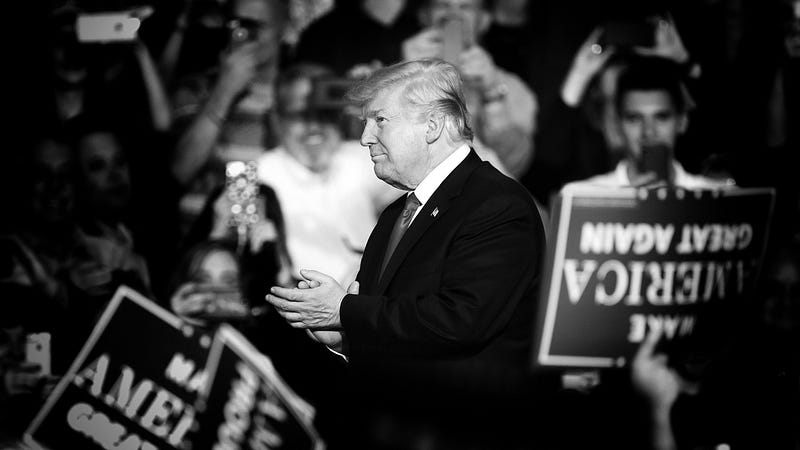Trump's Constitutional Viability as a Presidential Candidate
Written on
Chapter 1: Constitutional Qualifications for the Presidency
The U.S. Constitution outlines three main criteria for presidential candidates: they must be at least 35 years old, a natural-born citizen, and have resided in the United States for the last 14 years. These were the sole qualifications established by the Founding Fathers, leaving other considerations to the judgment of the electorate.
Conversely, there are specific circumstances under which a qualified individual can be disqualified from holding public office. For instance, a person can be barred from future office if they are convicted in an impeachment trial by a two-thirds Senate vote. Furthermore, the 14th Amendment stipulates that anyone who has "engaged in insurrection or rebellion" or provided "aid or comfort" to those opposing the government can be disqualified from public office. Notably, a formal conviction is not required for this disqualification.
Given the context, it would be difficult to argue that Donald Trump and his associates did not participate in actions deemed insurrectionary against the U.S. government, particularly concerning the electoral process and the peaceful transition of power. At a minimum, they have significantly aided those seeking to undermine the democratic will. However, the legal landscape surrounding barring a former president from candidacy remains largely untested.
Section 1.1: Legal Implications of Trump's Actions
There is a compelling argument suggesting that Trump's criminal actions may disqualify him from holding any public office in the future. Yet, it's essential to clarify that the act of running for the presidency is not a constitutionally guaranteed right. His current legal status does not afford him any special privileges regarding his candidacy.
Trump faces criminal charges across four jurisdictions—two state and two federal—with a total of 91 counts against him, potentially leading to a significant prison sentence. His desire to run for office does not exempt him from legal accountability.

Chapter 2: The Intersection of Justice and Political Aspirations
Amidst ongoing discussions in the media about court schedules and pre-trial motions, there seems to be a misconception that Trump should receive preferential treatment as a candidate. This notion is fundamentally flawed.
Justice requires that Trump and his co-defendants be treated equally to any other citizen under criminal prosecution. While they cannot be barred from competing in elections, they are entitled to no additional considerations. There is no "get out of jail free" card simply because one aspires to be President.
Democracy in the United States may not be entirely broken, but it is undoubtedly under strain. To restore order and protect democratic principles, the judicial system must remain impartial, free from the influences of wealth and power.
The first video discusses whether the 14th Amendment could prevent Trump from running for office, exploring the implications of insurrection on eligibility.
The second video examines a Supreme Court ruling affirming that only Congress, not individual states, has the authority to remove Trump from ballots.
If you appreciate this analysis, consider following more insights from David Todd McCarty. For those not yet subscribed to Medium, signing up allows access to David's articles and thousands of other engaging writers. Connect with David Todd McCarty on Mastodon.